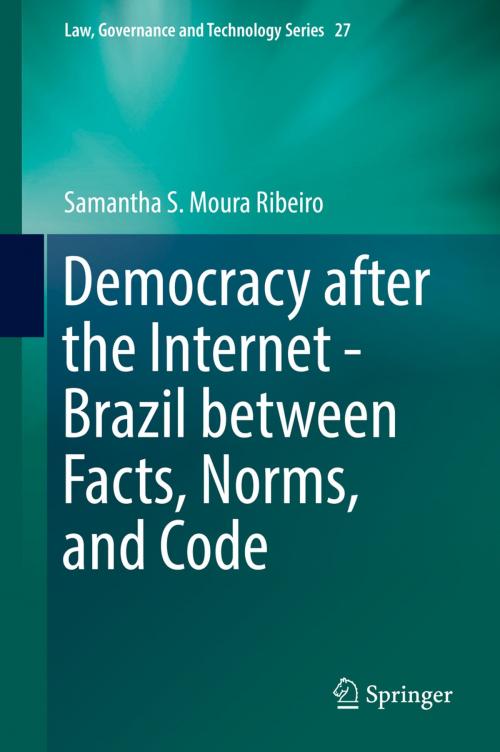Democracy after the Internet - Brazil between Facts, Norms, and Code
Nonfiction, Reference & Language, Law, Reference, Computers, Advanced Computing, Information Technology| Author: | Samantha S. Moura Ribeiro | ISBN: | 9783319335933 |
| Publisher: | Springer International Publishing | Publication: | August 16, 2016 |
| Imprint: | Springer | Language: | English |
| Author: | Samantha S. Moura Ribeiro |
| ISBN: | 9783319335933 |
| Publisher: | Springer International Publishing |
| Publication: | August 16, 2016 |
| Imprint: | Springer |
| Language: | English |
This book throws new light on the way in which the Internet impacts on democracy. Based on Jürgen Habermas’ discourse-theoretical reconstruction of democracy, it examines one of the world’s largest, most diverse but also most unequal democracies, Brazil, in terms of the broad social and legal effects the internet has had. Focusing on the Brazilian constitutional evolution, the book examines how the Internet might impact on the legitimacy of a democratic order and if, and how, it might yield opportunities for democratic empowerment. The book also assesses the ways in which law, as an institution and a system, reacts to the changes and challenges brought about by the Internet: the ways in which law may retain its strength as an integrative force, avoiding a ‘virtual’ legitimacy crisis.
This book throws new light on the way in which the Internet impacts on democracy. Based on Jürgen Habermas’ discourse-theoretical reconstruction of democracy, it examines one of the world’s largest, most diverse but also most unequal democracies, Brazil, in terms of the broad social and legal effects the internet has had. Focusing on the Brazilian constitutional evolution, the book examines how the Internet might impact on the legitimacy of a democratic order and if, and how, it might yield opportunities for democratic empowerment. The book also assesses the ways in which law, as an institution and a system, reacts to the changes and challenges brought about by the Internet: the ways in which law may retain its strength as an integrative force, avoiding a ‘virtual’ legitimacy crisis.















